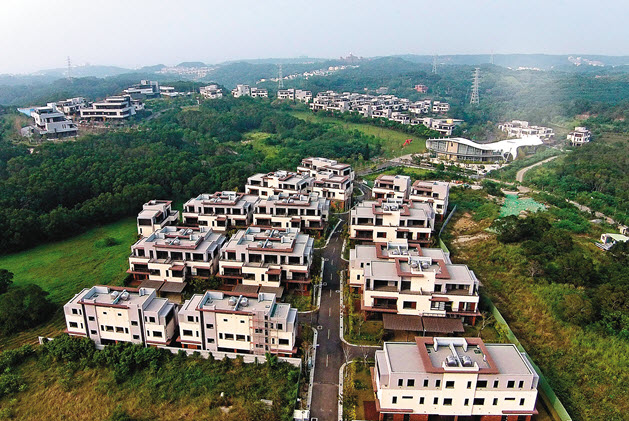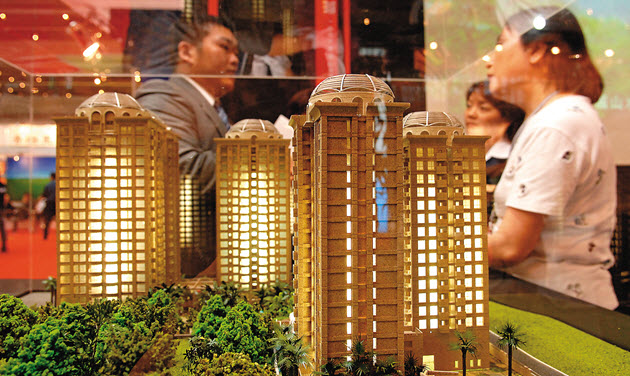Housing Justice
Legislative Loophole Hurting Reform

Source:CW
Legislation was passed in 2011 to register actual real estate transaction prices in Taiwan but it was watered down in cross-party consultations. As calls for revisions mount, can a better system be devised and passed?
Views
Legislative Loophole Hurting Reform
By Kai-yuan TengFrom CommonWealth Magazine (vol. 565 )
The prices for "pre-sale housing," buoyed by speculative investors around the island in recent years, have gone through the roof and remain high at this time. The unexpected culprit behind the phenomenon is the back door left by the revised regulations passed by the Legislative Yuan excluding the listing of actual sale prices for pre-sale housing at the time of sale, giving investors a mechanism for their speculative conduct.
CommonWealth correspondent traced the story behind the Legislative Yuan's revisions to related regulations, discovering a twist few knew about.
In December 2011, with the presidential election drawing near, the presidential candidates from both the Kuomintang (KMT) and Democratic Progressive Party (DPP) strongly supported the quick passage of five laws equated with "housing justice," including the registration of actual real estate transaction prices. The Executive Yuan's original version included the listing of actual pre-sale housing prices, which were required to be registered within 30 days of the transaction in the interest of transparency.
After the bill was sent for cross-party consultations, however, that portion of the bill quietly disappeared. Replacing it was a clause permitting sales agents to list the actual transaction price at the conclusion or termination (i.e. completion of sale) of the agent sales contract.
Often many years pass between the initiation of construction to completion of a pre-sale property transaction. During that interim period the buying and selling of pre-sale properties begins, and a given property can change hands among different investors several times by the time construction is completed. As long as the actual transaction price is not listed, sales agents and investors can team up to drive housing prices up. Meanwhile, consumers are kept in the dark, or treated as guinea pigs at the end of the line paying the highest price. "Listing prices only after the completion of sale means nothing at all," says Consumers' Foundation Housing Committee convener Lin Wan-ken, adding, "That is the biggest failure of actual sales price registration."
The issue is, who created such a gaping "back door" during the revision of the articles concerning the registration of actual real estate transaction prices?
The final signatories of the consultations, the two major party whips, included then-KMT Policy Committee executive director Lin Yi-shih and KMT legislator Chao Li-yun, as well as DPP party caucus convener Ker Chien-ming and legislators Tsai Huang-liang and Wong Chin-chu (by proxy), and independent legislators Lin Ping-kun and Yen Chin-piao.
What is shocking is that DDP legislator Chen Chieh-ju, who allied with civic groups to promote actual transaction price registration in 2011, found out that the wording regarding pre-sale housing had been rendered "totally unrecognizable" only after the law had been passed.
 The Legislative Yuan’s revised bill opened a “back door” allowing delayed registration of actual transaction prices for pre-sale housing.
The Legislative Yuan’s revised bill opened a “back door” allowing delayed registration of actual transaction prices for pre-sale housing.
"I remember that there was no such thing (referring to "completion of sale") when negotiations began. It's really strange that it turned out the way it did during the second and third drafts," she recalls. Despite her puzzlement at the course of events, there was nothing she could do about it. "By then the law had passed its third reading, so who are you supposed to argue with then?"
Lin Wan-ken, who kept a watchful eye on the revision of the law throughout the process, notes that "only during the final round of negotiation was everything overturned."
A legislative aide that participated in the negotiations revealed to the reporter how the law ended up turned around the way it did.
According to him, during the morning negotiation session of Dec. 12, 2011, a number of legislators opposed the wording in the law related to the registration of actual sales prices, so that "even Legislative Yuan Speaker Wang (Jin-pyng) believed it would be hard to find common ground," leading to the breakdown of negotiations.
Looking back, he recalls that there was considerable pressure from society at large to pass legislation requiring registration of actual transaction prices, and that President Ma Ying-jeou had convened a meeting of KMT legislators at the president's office, following which an initial consensus was only reached among the parties in negotiations later that afternoon. At that point, pre-sale housing was still included among the types of housing for which actual sales prices must be registered.
However, that consensus was unable to hold up through the final stretch, and when the final version of the bill was presented for voting the following day it included the critical "final sale" language. This was akin to excluding pre-sale housing from the actual price registration requirement.
Another senior legislative aide revealed that KMT legislator Wu Yu-sheng was shuttling in and out of the premier's office engaged in frenzied negotiations, playing a critical role.
In an interview with CommonWealth, Wu Yu-sheng says that he and legislator Lai Shyh-bao had been pushing for the registration of actual transaction prices, but that tremendous pressure applied by the construction industry lobby deterred legislators from backing it. "Some people didn't say anything. They only said at the end of the process that they'd go along if pre-sale housing was excluded."
Can the Legislature repair the damage?
"The original proposal was a perfect 100 score, but if no one lets you pass it you have to think about compromising. Only when you compromise can you get the concept of actual transaction price registration out there. So you settle for 70 points first instead of 100," admits Wu Yu-sheng, describing how the "completion of sale" language was inserted into the legislation.
Consequently, although registration of actual transaction prices did achieve some momentum, pre-sale homes became a new promised land for investors.
In the middle of last year, the Ministry of the Interior looked into making further revisions to the bill to include pre-sale housing among the property categories required to register actual transaction price, thus regulating the actual sales price for pre-sale housing. However, although both blue and green legislators have proposed related bills, it is still unknown when such legislation will gain passage.
In the final analysis, damage must be undone by those that cause it. Only the swift passage of revised legislation to truly incorporate pre-sale housing among actual sales price registration requirements can nip speculative investment in the bud. The people are watching with both eyes wide open to see if the Legislative Yuan can repair the damage.
Translated from the Chinese by David Toman






